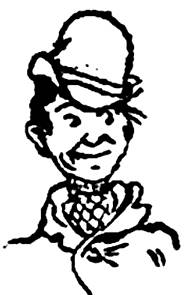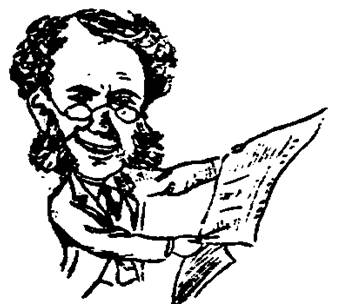This article has been transcribed from a copy of the Cardiff Times in the online collection of scanned Welsh newspapers 1804-1919 in the National Library of Wales, with grateful recognition of the free access accorded to all readers. Where necessary paragraph breaks have been introduced for easier reading.
This scene is set after the series of Education Acts from 1870 onwards established the foundations of English and Welsh elementary education. Under Gladstonian Liberalism the state became increasingly involved in education, and after 1880 attendance was made compulsory for children until they were 12 years old. In 1875 the newly founded Cardiff School Board brought elementary education to the town for the first time, and in 1878 Cardiff's first purpose-built Board School was opened in Eleanor Street in Butetown. Public libraries were also a relatively new phenomenon. In 1861, a free library was set up by voluntary subscription above the St Mary Street entrance to the Royal Arcade in Cardiff. By 1862, under the provisions of Public Libraries Act of 1855, local councils with 5,000 inhabitants or more were allowed to raise a rate of one penny in the pound to provide a public library. Cardiff was the first town in Wales to establish one, which was known as the Cardiff Free Library until 1882. By now there were so many white-collar jobs that the old tradition of personal recommendation of candidates had to supplemented by competitive applications. School qualifications in the elementary skills of reading, writing and arithmetic were important for the first time. Samuel also reminds us that reading rooms were not only used in the pursuit of education and the writing of job applications, but to provide – as they continued to throughout the twentieth century – the cheapest means of keeping warm and dry. Noticeably some of the men in the one Samuel visits are unable to return to their houses, where there is no room for them because their families are forced to take lodgers to meet the rent. — David Skilton

Oh, what a character study is to be found at a Free Library every morning. Let me attempt to describe it. Let us take what I may call the regular habitués first. There is the broken-down looking elderly man in the last stage of seediness, who is at the reading-room door immediately the latter is opened, and who sits, as though he were one of the fixtures of the place, till late in the afternoon, monopolising for hours any one of the papers he may take a fancy to, despite the ‘After you, sir's,’ and coughs and hints of a score of applicants for the same paper. He generally carries his midday meal (probably consisting of an onion and some fat and bread, wrapped up in innumerable folds of dubiously clean newspaper) with him, and this he partakes of as he reads. Probably near him there will be a comparatively young man, who seizes with avidity upon all the pictorial papers he finds within reach, and who, when he has looked over them all, will drop off into a doze, during which he will snore stentoriously till he is brought to a sense of his offending by an indignant reader sitting next to him. Then he will pull himself together, and gaze dreamily around for awhile, and yawning and stretching himself, will leave the place in a half-somnolent sort of fashion. It is very possible that he is one of those individuals whose wife lets apartments, and who thereby supports him and enables him to improve his mind at the Free Library. When he has finished his morning fire-lighting, has cleaned the lodgers' boots, and has had his breakfast, he is clear for the day, except on a Friday, when he has in all probability to scrub the windows and do the blackleading [of the grate].

Always, as a regular habitué at a free library, is to be found a semi-clerical and very mouldy locking man, who, with a very short stump of pencil, which he frequently licks, makes copious extracts from a variety of publications upon the backs of envelopes and other scraps of paper. What use he makes of the extracts when he has got them must be left to conjecture — probably he boils them down and embodies them in dismal tracts of outdoor sermons. When he finishes his work, however, he folds up his papers with an air of great satisfaction, carefully pockets the stump of pencil, and searches in the stand for a very fat umbrella that no one under any possible circumstances would ever think of stealing, and which he therefore can safely leave to take care of itself. Far different from him is a stout and plethoric-looking man, who may either be a tradesman who has retired on small means, or a jovial being who is living with or upon a prosperous son-in-law. He, like one of the other characters, I have mentioned, goes in for the illustrated papers — and generally the comic ones. Ere commencing to read, he takes off a very curly-brimmed top-hat, takes from it a handkerchief, places it upon a table, and then begins to mop his face. Then, having wiped his spectacles, he, with very creaking boots, walks across the room, and goes for one of his favourite papers. You are soon aware of the fact that he is digesting it, for you hear loud chucklings which seem to come from some sub-terranean depth, and everyone looks round. The unearthly noises are discovered to arise from the fat man, who is indulging in suppressed mirth – mirth so bottled up, indeed, that the spectators almost wonder that the obese man does not suddenly burst all his buttons. The chucklings continue, and gradually end in an unrestrained ‘guffaw,’ which fairly startles the whole room.

Let me not forget what I may call the hungry looking reader, the man who, no matter where you may sit, seems to be following you with a lynx eye, as though he were eagerly thirsting for the next chance of the periodical (be it what it may) which you are then attempting to read. A most discomforting effect has his gaze. It is suggestive of the evil eye, or of one of the impossible detectives of the sensational novelist. There are many of his class always present, and immediately you have laid down the journal which you have been reading, they all in a most surprising way spring up from different points of the room, and make a simultaneous grab at it. I have ventured to christen them the ‘reading-room’ vultures. Fearful and dire is the vengeance the eyes of the non-successful ones seem to threaten upon the vulture who manages to seize the paper. All these regular attenders are to be seen, and, in addition to them there is many a ‘moucher’ [loiterer]. (I use a vulgar but expressive word) who goes not so much to keep his eye upon the papers or upon the umbrella stand, with a view, no doubt to making provision for a rainy day. There are many dark as well as humorous sides of life to be seen in the reading-room. Look at the broken down but respectable looking man who now enters. He walks up to one of the reading stands and joins a band of persons who are running up and down the advertisement columns of one of the ‘dailies.’ There is no perusing of sensational news about him; it is with the ‘Situations Vacant’ column that he is concerned. You will see him flush with eagerness as he lights upon some likely item, and then he will button his threadbare coat tightly round him and walk hurriedly off, no doubt to make application for some berth. Equally unemployed, but perhaps not quite equally worthy, younger fellows, who are palpably clerks, are to be seen. They have a seedy sort of swelldom about them, and they scarcely make the same display of eagerness which marks the conduct of the older men. Sometimes, after reading an advertisement, they sit down and write a note with materials taken from their pockets, and having sealed this up they look round as much as to .say, ‘Now I wonder whether there is anyone here whom I know, and from whom I could borrow the penny for a stamp to put on this envelope.’ Sometimes a pale, dis[s]pirited, hungry, wretched looking young man will come in, and, with almost feverish anxiety, glance down the advertisement columns of the papers. Sometimes a shade of utter despair will come across his face - the dull leaden look of misery which tells of hope deferred – of many a bitter disappointment. Who knows but, wretched being that he is, he may have a. starving wife and children at home, to whom he will at night-time be compelled to return, only to tell his story of further failure and of utter despair. Perhaps he may have committed some faux pas which has left him without employment and without character. If so, Heaven help him in these days, when all the markets overflow with able and willing workers.


Any description of the reading-room would be incomplete were I not to refer to the sniggering lads, generally errand boys out of work, who attend. Of course, any papers which have pictures in them are their speciality, but, in default of finding any such, they sit and watch the other readers, and, in groups of two or three, discuss in whispers the peculiarities of the latter. A very ancient, toothless party with horn-rimmed spectacles amuses them greatly to all appearance, for he mumbles each word over as he reads it, as though he found some difficulty in masticating it between his gums. Finally, their mirth reaches such bounds that they are interfered with, and incontinently bundled out into the passage, from whence their retreating anathemas are audible for some minutes. Turning from these ‘larrikins’ [rowdies], I may say that, not a few respectable men are there who can read but imperfectly, and who will politely address a stranger and ask him to read a given advertisement over for them, their excuse generally being that they have ‘left their glasses at home.’
If a man wants to realise, sir, how much of respectable poverty there is in the world, he cannot do better than I have done, and go and sit for a brief while in our reading rooms, for it may be that, if he be a man of any substance, it will open his heart and suggest generous impulses, or it may cause him to thereafter aid by his voice all those who are in the land crying out for such measures of reform as shall enable every willing worker an opportunity of earning a decent livelihood.
Last modified 13 December 2021